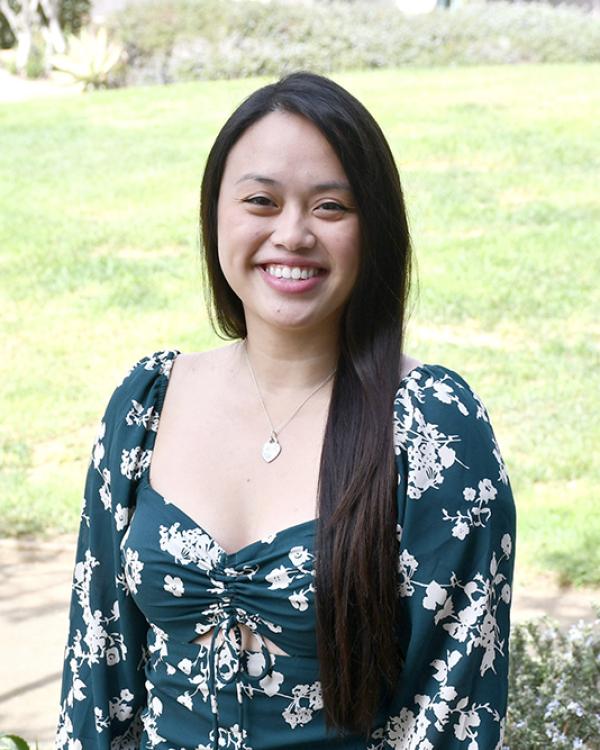
GGSE: What made you want to become a professor and a licensed school psychologist?
Pauline Serrano: My path to school psychology began early in high school when I sought out a job as a private tutor to support myself and my single mom. My students had learning disabilities and developmental disorders and it was evident that I needed to adjust my teaching style to suit their unique needs. I was developing individualized education plans before I even knew what they were called. When I began my bachelor’s, I was hired as a supplemental instructor where I led my own lab section and discovered my passion for teaching in a classroom setting. Shortly after, I was promoted to supervisor for all supplemental instructors and tutors at our university’s tutoring center as I simultaneously took on teaching assistant roles in multiple capacities. Eventually, I went on to become a teaching associate as a master’s student and am now working as part-time faculty as a doctoral student. Achieving my goals of becoming a professor and licensed school psychologist will be my wildest dream come true.
GGSE: As a first-generation college student and immigrant from the Philippines, how has your identity impacted your work?
Serrano: I view my background and identity from a cultural wealth perspective and recognize that I have gained resilience, an impeccable work ethic, and a community of people that guide, support, and believe in me. The lens I use to view the world resembles the perspective of several members of the communities I research, students I teach, and individuals I mentor. Our shared lived experiences inform my work and continuously inspires and motivate me to be the representation I always yearned for in my own academic journey.
GGSE: What led you to choose UCSB to pursue your Ph.D. in School Psychology?
Serrano: My passions align with UCSB’s school psychology Ph.D. program’s scientist-practitioner model and goal of advancing equity to support ethnically, culturally, and linguistically diverse students and families. The integration of establishing foundational knowledge in theory, providing exposure to research methodology, and applying the practice in the field will provide me with the training necessary to become a well-rounded scholar. The collaborative and supportive learning environment has enabled me to thrive. My mentor, Dr. Jill Sharkey, conducts research looking at understanding optimal family, school, and community response to youth at risk, which aligns with my goal of harmonizing academic and familial contexts for students from underrepresented backgrounds. UCSB was my number one choice, and I am thrilled to be here!
GGSE: In the future, are you hoping to teach, research, work as a clinician, or do some combination of the three?
Serrano: I am hoping to do some combination of the three. I think that all roles are important and inform one another. I am actively trying to determine what that might look like in the future and what is feasible. No matter the capacity, I am excited to be in a position where I can support the creation of a more equitable and inclusive world for the next generation of underrepresented scholars.
GGSE: If you have free time, what do you like to do with it?
Serrano: In my free time, I enjoy spending time with my friends and family, going on mental health walks, and listening to audiobooks.